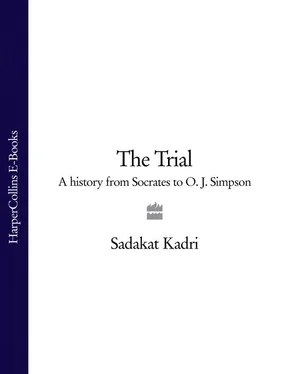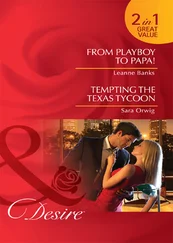He had in his hand, he announced, a signed letter that Cobham had written just the day before. The prisoner had been so troubled by a guilty conscience that he had been unable to sleep and he had now chosen finally to unburden himself. ‘I have thought it fit’, recited Coke in his powerful voice, ‘to write nothing but what is true; for I am not ignorant of my present condition, and now to dissemble with God is no time.’ Raleigh, the letter continued, had written to him in his jail cell – not just once, but twice – and urged him to withdraw his accusations of treason. But Cobham would not do so. Indeed, ‘craving humble pardon’ for his ‘double dealing’, he now claimed that Raleigh had solicited an annual payment of £1500 from the Spanish government in exchange for his services as a spy.
Raleigh was visibly shaken. He eventually handed up a letter, smuggled out of Cobham’s cell, in which the prisoner said precisely the opposite, protesting Raleigh’s innocence, but it came as a damp squib after Coke’s pyrotechnics. Raleigh admitted also that he had indeed written twice to his old friend, that he had been offered £1500 to be a spy and that he had been wrong to conceal that fact from the court. ‘But for attempting or conspiring any treason against the King or the State,’ he insisted, ‘I still deny it to the death, and it can never be proved against me.’ It was all too late. Even if Cobham was a double-dealer on his own admission, Raleigh’s own words suddenly sounded like those of a man with secrets to hide.
After the jurors were told by one of Coke’s colleagues that the defendant had to prove his innocence, a common view in the seventeenth century, it took them just fifteen minutes to return a guilty verdict. Lord Popham then delivered the standard sentence for traitors, ordering that Raleigh be dragged to the scaffold and half-hanged, before being made to watch while his intestines and penis were tossed onto a fire. He was then to be decapitated and cut into quarters, each flank to be disposed of at the king’s pleasure.
Such a sight would have made a great many people very happy in 1603, but Raleigh’s life had further to run. He was spared by James and spent more than a decade confined to quarters in the Tower of London, conducting chemistry experiments, writing a history of the world and imagining lands and times far away. Then, in 1616, opportunity knocked. James, ruminating on Raleigh’s claims to have stumbled upon the route to El Dorado, had decided that a little unfathomable wealth would be no bad thing. He could, declared the king, set off to find the fabled city – a fifth of all receipts to go to the Crown. Raleigh, presented with one last glimpse of glory, set sail on 12 June 1617. By the time he returned a year later, the dream had turned to dust. Skirmishes and smallpox had devastated his crew. Among the scores of men that he had left buried on the banks of the Orinoco were his lifelong servant and his eldest son. And instead of cargoes of bounty, he trailed in his wake only furious complaints from Spain’s ambassador that he had attacked one of that country’s colonial outposts.
James, deeply unimpressed with his fifth of nothing, now judged it politic to appease the national enemy. The man who had been condemned for serving Spain was about to pay a heavy price for having offended it, for instead of giving Raleigh another trial the king decided simply to enforce the penalty that he had stayed fifteen years before. Sentence was pronounced at a hearing at which Attorney-General Sir Henry Yelverton delivered a Luciferian epitaph for Raleigh. He had lived ‘as a star at which the world hath gazed’, he told the judges, ‘but stars may fall, nay, they must fall when they trouble the sphere wherein they abide’.
The end came on a chilly morning in late October 1618. The crowd’s sympathies were this time squarely with Raleigh. At a time when Elizabethan England was already receding into mythology, his erstwhile arrogance had come to seem fitting to an age of giants, and the doomed quest for El Dorado had tempered its edge with tragedy. The panache with which he now lost his head would propel him into the pantheon of great dead Englishmen. After a long speech that ended with an invitation to the spectators to join him in prayer, the sexagenarian, etched and grey, thumbed the blade of the axe that would kill him. It was ‘a sharp medicine’, he murmured, ‘but it will cure all diseases’. He knelt at the block and, told that he was facing westwards – away from the traditionally presumed direction of the Last Judgment – declined to switch direction. ‘What matter how the head lie, so [long as] the heart be right?’ he asked. His last words, refusing the headsman’s offer of a blindfold, were suitably swashbuckling: ‘Think you I fear the shadow of the axe, when I fear not the axe itself?’ The show was over – and with a final flourish, Raleigh threw his arms above his shoulders to call down the curtain.
Whether Raleigh was in fact innocent of the treason charges laid against him in 1603 is as questionable today as it was four centuries ago. He certainly had reason to fear that his influence would decline after Elizabeth’s death, and although his score sheet against Spain was impressive, he lived in an age when allegiances were honoured in the breach as much as in the observance. For what it was worth, Cobham reasserted Raleigh’s guilt at his own trial and maintained the accusation ‘upon the hope of his soul’s resurrection’ as he stood upon his scaffold.
Raleigh’s trial was important, however, for reasons that transcended the truth or falsity of the charges. The sight of him struggling for his life against a phantom accuser, damned by documents that were dealt out like a blackjack hand, was so palpably unfair that it almost immediately became a model for how things ought not to be done. Several of the king’s advisers – including Edward Coke – urged James in 1618 to give him a second trial, with witnesses; and although the monarch remained ruthless as ever, reminding them that Raleigh had ‘by his wit…turned the hatred of men into compassion,’ the proceedings would fall ever deeper into disrepute. Raleigh himself claimed at his condemnation that one of the judges had repented of his role at Winchester from his deathbed. By 1656, an anonymous pamphleteer was swearing that Coke had privately expressed shock at the jury’s verdict, while another writer recorded that the jurors had knelt to beg Raleigh’s forgiveness after convicting him. All the stories were as incredible as they sound, but the speed with which they were recounted and believed is a sign of just how emblematic the trial had become. The myths would in time contribute to ideas even more far-reaching: that courts were there to limit state power as much as to express it; that prosecutions could be unfair even if a defendant was guilty; and that justice was done only if seen to be done. And they did so simply because transparency had made the unfairness of the alternative so manifest.
An ironic postscript is that few people did more to promote the vision of liberty that would accompany the sanctification of Raleigh’s trial than Sir Edward Coke himself. In 1606, King James promoted his Attorney-General to Chief Justice of Common Pleas, at which point the erstwhile lapdog clenched his teeth around the hand that had fed him, and bit – hard. For the two decades that remained of his life, he would not let go. At a time of political turmoil, when thinkers across Europe were pondering the ideal relationship between God, monarch, and subject, James had written a treatise arguing that kings were above human laws and followed them voluntarily, if at all. Coke, by way of several court rulings, case reports and a monumental textbook, begged to differ, insisting that rulers obeyed because they had to. To cut a very long story extremely short, his arguments won. The Puritan rebels who chopped off the head of James’s son, Charles I, cited him as their legal authority in 1649. Towards the end of the next century, his work would enjoy an even more lasting impact – inspiring American revolutionaries from John Adams to Thomas Jefferson, when they too concluded that it was time to cut their rulers down to size.
Читать дальше




![Theresa Cheung - The Dream Dictionary from A to Z [Revised edition] - The Ultimate A–Z to Interpret the Secrets of Your Dreams](/books/692092/theresa-cheung-the-dream-dictionary-from-a-to-z-r-thumb.webp)







